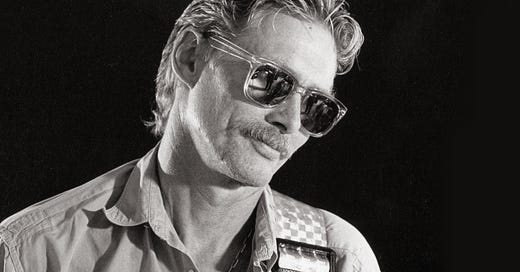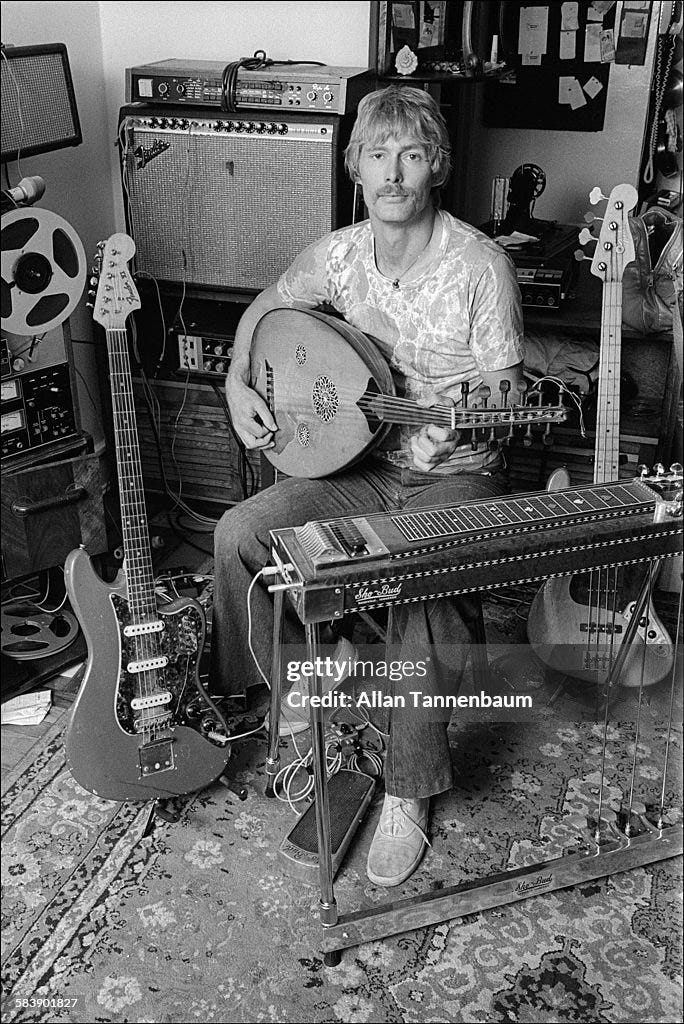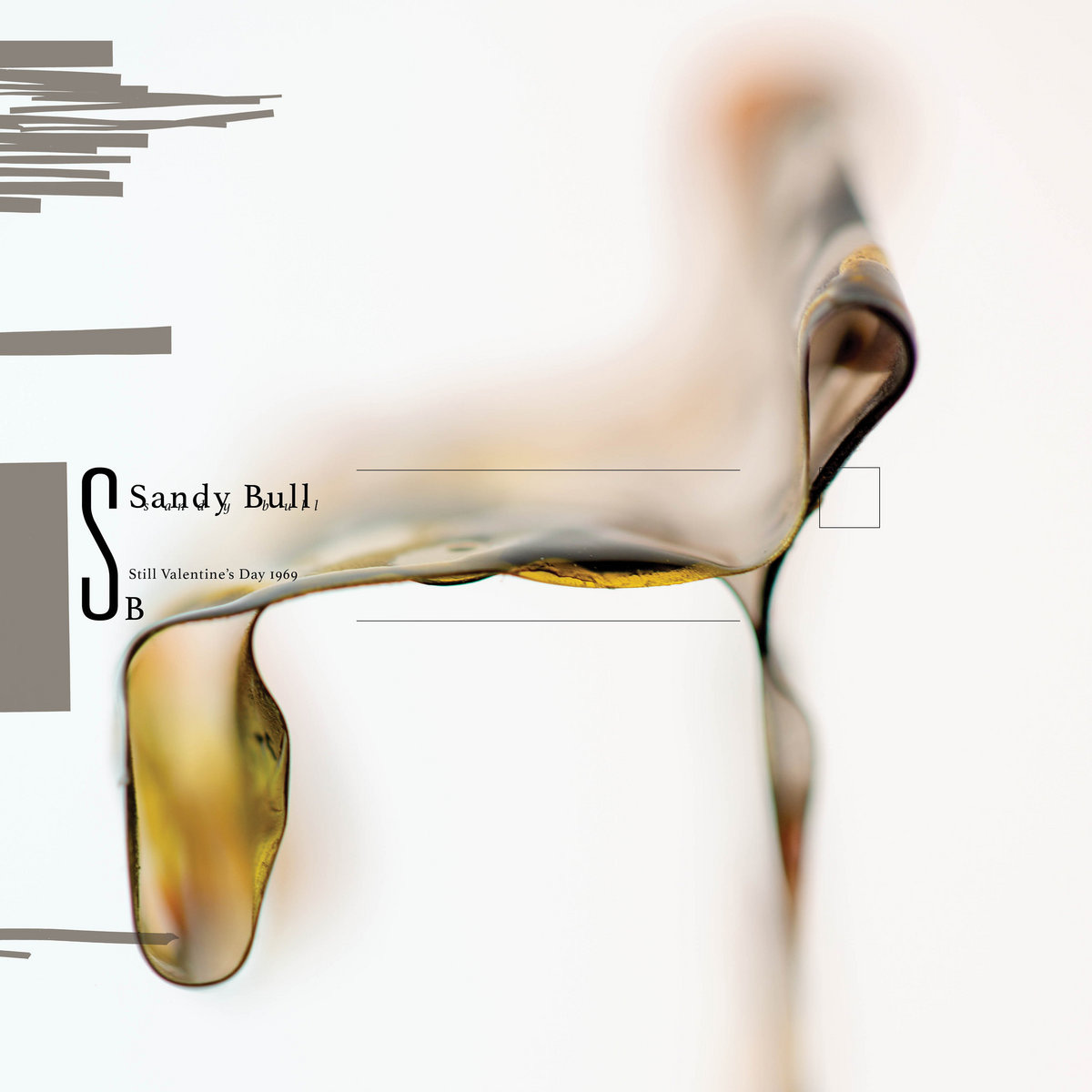Sandy Bull? And who was he? Sandy Bull is a legendary name, if you think you belong to a cult because you love Segovia or Basho or Fahey ... well you're wrong, for Bull fans you are even mainstream. A brilliant and innovative guitarist in the 60s, a pure alchemical son of that flower power generation that wanted to change the world, Sandy was a true outsider in the world of contemporary guitar. A brilliant multi-instrumentalist, he was able to switch with ease from the acoustic guitar to the electric guitar to the oud and banjo. Born in 1941 in New York, he passed away from cancer in 2001 ... without ever having seen his ante-literam innovator and experimenter skills truly recognized.
His music is a prodigious synthesis of antithetical idioms and one of the most enduring achievements of avant-garde folk. Bull had nothing to do with the nascent country-rock movement, but his lesson in creative individualism was fundamental in opening new horizons to the genre that will be called "American primitivism".
His albums present a mixture of traditional music and American blues mixed with melodies and ideas drawn from oriental and Persian music. He left us a handful of records, not easily available and territory for collectors and die-hard fans (including myself). For those who want to compare with his ideas, I strongly recommend buying and carefully listening to this handful of truly interesting and unique albums.
Bull made his first album in 1963, “Fantasias For Guitar & Banjo” (Vanguard, 1963), with the sole accompaniment of Ornette Coleman’s drummer Billy Higgins. The album’s highlight is the twenty-two-minute suite, Blend, for banjo-tuned guitar and drums. Influenced by oud player Hamza El Din, with whom he shared an apartment in Hollywood in 1963, Blend is a rhythmic synthesis of jazz improvisations, raga syncopations, Arabic chords and folk melodies, a driving sonic excursus that explores fabulous worlds filtered through the sensibility of a folk ballad singer, alternating slow, transcendent phases with furious jams. Often psychedelic, before anyone even knew what psychedelia was. Remember, it was 1963, the Beatles were singing “Please Please Me” and Bob Dylan was just starting to make a name for himself. Among the other tracks on the album, some arrangements of classical music for solo banjo or guitar stand out.
On the next “Inventions For Guitar And Banjo” (Vanguard, 1965), recorded in 1964, another masterpiece, we find the sequel: Blend II. It is a melange (a little more electric in tone) of folk, jazz and Middle Eastern, this time lasting 24 minutes. Also included on this 54-minute LP are two versions (electric and acoustic) of a piece by Bach, a 14th century composition (Guillaume de Machaut's "Triple Ballade") and Luiz Bonfa's "Manha de Carnival". An extended and heavily reverbed version (with drums) of Chuck Berry's "Memphis, Tennessee" closes the set with an unexpected explosion of rock & roll.
“E Pluribus Unum” (Vanguard, 1970 - Sutro Park, 2009), recorded mostly in 1968, is his psychedelic album. Played on a guitar with a metallic, dry, bristly sound, the electric signal is divided by four different amplifiers. The album contains two long meditations: Electric Blend (a "blend" for electric guitar whose signal is amplified in four different ways), a suite projected by spatial chords that continually rise and fall, an intense and suffused prayer marked by the rhythm of a procession by Indian drums, with the guitar imitating the nasal notes of the sitar; and No Deposit No Return Blues, a vibrant jam for guitar, bass, drums, oud, hi-hat cymbal, cowbell, which unfolds in a slow rhythmic crescendo of touches, vibrations, counterpoints, echoes, percussive noises.
Bull used to accompany himself live using music already pre-recorded on tape or using a rudimentary, but effective, system of overdubbing, as demonstrated in another excellent album released in 2006 by Water Records: Still Valentine's Day, 1969: Live At the Matrix, San Francisco. It's another fabulous album. It was recently re-released with a new graphic design and a new remastering on bancamp. Don't miss it.






